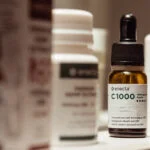Drug & Alcohol Rehab in Oswestry
If you’re reading this page, that probably means you’re trying to research drug and alcohol rehab in Oswestry. And that probably indicates that either you, or someone you care about, is struggling with addiction.
The first thing you need to know before we go into any of the details of treatment is that you’re not alone. You may feel isolated right now, as everyone around you carries on as normal and you suffer (often in silence). But so many people are feeling the same things as you and are experiencing a lot of the same side effects of the same disorder.
And yes, addiction is officially considered a disorder. An especially vicious one too, given that it changes how your brain is wired, affecting you physically and psychologically.
Even if you’re not getting the amount of support you need from those around you, at OK Rehab, we’re here to offer you as much as you need. If you simply call our helpline, we’ll be able to direct you towards services and organisations that offer various kinds of treatment.
More details on that later, but for now, let’s look into the impact addiction can have on a person’s life in a bit more detail.
The impact of addiction
If you’re going through an addiction, you’ll probably be fully aware of how much it can wreck a person’s life. It damages your health, your relationships and even your work life in some cases.
Some of the key physical signs of an addiction are:
- Sudden changes in weight
- Slurred speech
- Obvious reduced hygiene
- Insomnia
- Changes in pupil size (either enlarged or small)
Many people who’ve been struggling with addiction for a long time may have also developed what’s called a dependency, where your body now requires addictive substances to function. This usually manifests itself in withdrawal symptoms when the person attempts to stop.
If you’ve tried to go cold turkey and have experienced withdrawal symptoms, don’t panic or lose hope. Nearly all addiction treatment plans start with some kind of detox, where, in a controlled and supported way, your intake of drugs and/or alcohol will slowly be reduced and replaced with medication if necessary.
This physical cleansing of your body is often one of the hardest parts of the process, but it is also often one of the most important.
Having said all of that, the amount of damage done (and the level of intensity needed treatment-wise) could depend on how long the addiction has lasted.
Even if you haven’t reached that stage yet, if you don’t get help, you run the risk of your addiction becoming much worse. It’s like a lot of other illnesses and disorders: early treatment is often key. Reaching out at the right time could save you in a lot of ways.
What can treatment offer me?
To put it simply, a chance at a better, drug and/or alcohol-free life.
One important thing we should establish from the start: addiction isn’t really cured by this process, or by anything. But it can be managed, especially via the strategies you’ll learn in both inpatient (residential) and outpatient (at home) treatment.
One major example of this is the workshops that are often offered in residential rehab. In learning more about subjects like addiction, health and nutrition from expert teachers, you’ll learn how to avoid relapse in the long term.
At the same time, many people find dealing with their emotional issues through various kinds of therapy and counselling very healing. To use an example, cognitive behavioural therapy helps you to get out of the toxic ways of thinking that could be making you spiral right now, called cognitive distortion.
Art therapy is freeing for many people, as it allows you to get out all of your emotions through what you create. Motivational interviewing encourages you to re-examine your behaviour through a series of non-judgmental questions.
Even the act of sitting down and talking to a councillor or therapist, going into the traumas or mental health problems that could have lead to your addiction, can be very beneficial. And if you were wondering what the difference between counselling and therapy is, it’s that therapy is more specialised, while counselling is more generalised.
Finally, a variety of physical treatments are often used to lift your mood and make other kinds of treatment more effective. Three of the most popular treatments in this category are massages, reflexology and acupuncture.
You’ll likely already know what massages are, but you might not know about the others.
Dealing with the addiction of someone you know
Addiction can also have a huge impact on those around the affected person, especially if it’s someone you really care about, like a friend or family member. If you’re reading this on behalf of another person, as many readers of this page are, you should know that everything you’re feeling is valid. You have a right to feel upset by the situation, just as much as the person suffering from the addiction.
Sitting the potential addict down and having a conversation about their problem will likely be the best course of action. Unfortunately, if you try to talk to them about it, you’ll likely be met with denial and anger rather than any kind of acceptance of the fact that that they need help. We offer an intervention programme to support you in getting through to anyone who needs it.
Another difficult situation to handle could be a work context. It’s not as easy to talk to a colleague or an employee about a potential addiction without crossing the boundaries This is especially true considering you might not know them as well as a family member or close friend would.
But it still might be a good idea to suggest to them that they need help. Our intervention programme is also available to you too.
And in both scenarios, our helpline is always open on the number at the bottom of this page.
Drug and alcohol rehab in Oswestry
If you want to go in the direction of residential rehab, there are over 10 highly-rated facilities either in or nearby Oswestry. That may not sound like a lot, but it actually is for one area! If outpatient rehab is more likely to be for you, then there are also a lot of options in terms of physical treatments, therapists and support groups.
And if you’re still struggling to decide whether inpatient or outpatient treatment will suit you best, we can help you with that, right here right now and on the phone in more detail. Most residential rehabs are designed for those with moderate to severe dependency. While a lot of the treatments are the same or similar, it will all happen in a more intensive environment.
Outpatient treatment is less intensive and you’ll probably need to organise more of it for yourself. As a result, it’s only really recommended for people with the lowest level of addiction.
Of course, it could also depend on your current home environment. If you have a lot of support around you, outpatient treatment will be easier. If not, it might be good to get away for a while, at least when you’re in the initial stages of recovery.
To find out what OK Rehab can offer you specifically, simply call 0800 326 5559. We’ll be able to assess your needs over the phone and with a fuller view of your specific situation, we should then be able to advise you on what your next steps should be.





